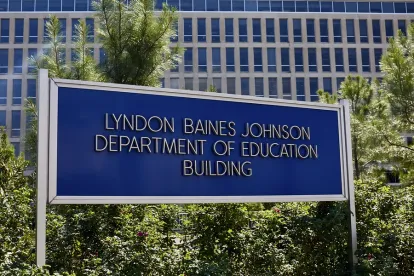While 2020 offered extraordinary challenges for higher education institutions (“IHEs”), many are hoping to see a return to a much more typical fall term experience for students in 2021. In an effort to encourage safer fall campus re-openings, the U.S. Department of Education has offered a third volume of pandemic-related guidance, focused particularly on the higher education sector.
This new COVID-19 Handbook, released on June 4, seeks to provide guidance to institutions on specific strategies that can be employed to enhance campus safety and to support students facing various types of challenges. The volume also offers further clarification on the appropriate use of Higher Education Emergency Relief Funds (HEERF) by campuses and a catalog of various additional grants and other forms of pandemic-related support that may be available to IHEs through various federal programs.
The Handbook notes unique challenges that have either arisen during the pandemic or have been exacerbated by it, seeking to offer best practice examples on how institutions may respond. In particular, the volume notes several challenging effects that the pandemic has had on campuses, including: the disproportionate negative impact on retention among marginalized student groups, the deepening of the technological divide based on incomes, the rise of food and housing insecurity among students, and the growth of mental health challenges.
The Handbook encourages campuses to implement recommendations from the CDC and other public health agencies, but also to utilize HEERF and other funding sources to alleviate student challenges. Recommendations include partnering with other entities to expand the availability of technological resources (Handbook, pp. 25-28) and to make COVID testing and vaccinations available free of charge on campuses (Handbook, p. 14). The Handbook notes that institutions cannot require students to complete a FAFSA in order to be eligible for HEERF emergency aid (Handbook, p. 31). As well, the guidance recommends that IHEs consider refunding portions of housing and dining costs where students were forced to return home due to the pandemic (Handbook, p. 34).




 />i
/>i

